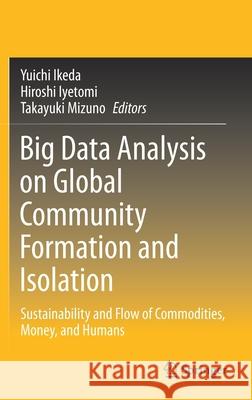Big Data Analysis on Global Community Formation and Isolation: Sustainability and Flow of Commodities, Money, and Humans » książka
topmenu
Big Data Analysis on Global Community Formation and Isolation: Sustainability and Flow of Commodities, Money, and Humans
ISBN-13: 9789811549434 / Angielski / Twarda / 2021 / 511 str.
Big Data Analysis on Global Community Formation and Isolation: Sustainability and Flow of Commodities, Money, and Humans
ISBN-13: 9789811549434 / Angielski / Twarda / 2021 / 511 str.
cena 483,04
(netto: 460,04 VAT: 5%)
Najniższa cena z 30 dni: 462,63
(netto: 460,04 VAT: 5%)
Najniższa cena z 30 dni: 462,63
Termin realizacji zamówienia:
ok. 22 dni roboczych.
ok. 22 dni roboczych.
Darmowa dostawa!
Kategorie:
Kategorie BISAC:
Wydawca:
Springer
Język:
Angielski
ISBN-13:
9789811549434
Rok wydania:
2021
Wydanie:
2021
Ilość stron:
511
Waga:
0.90 kg
Wymiary:
23.39 x 15.6 x 2.87
Oprawa:
Twarda
Wolumenów:
01
Dodatkowe informacje:
Wydanie ilustrowane











